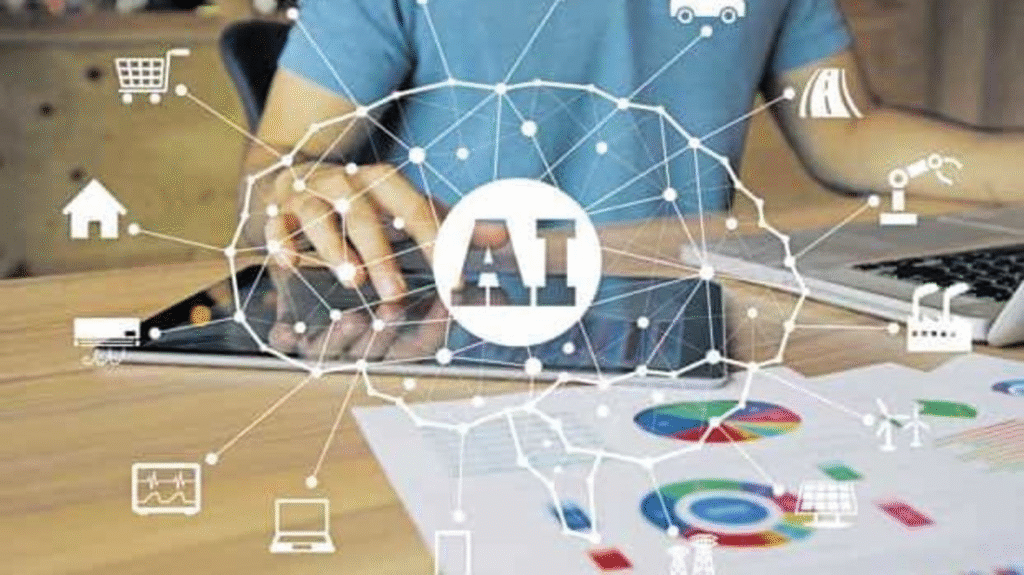The rapid rise of artificial intelligence (AI) has raised pressing questions across various industries, including mental health care. With AI-powered chatbots like Woebot and virtual assistants offering emotional support, many are wondering: Can AI replace human therapists? And perhaps more critically: Should it?

The Capabilities of AI in Mental Health
AI in mental health is not science fiction it’s already here. Several platforms use machine learning and natural language processing (NLP) to interact with users in meaningful ways. These tools can analyze tone, detect emotional cues, and even deliver cognitive behavioral therapy (CBT)-based responses.
Popular examples include:
Woebot: A chatbot developed by psychologists that uses CBT principles to help users manage anxiety and depression.
Wysa: An AI companion that offers self-help techniques based on mindfulness and CBT.
Replika: A virtual friend that engages users in ongoing conversation to build emotional support.
These platforms can deliver instant, 24/7 support and offer consistent interaction without judgment or bias. For many people, especially those facing barriers like stigma or cost, AI therapy offers a compelling alternative or supplement to traditional therapy.

The Case for AI in Mental Health
Accessibility
Mental health care is often expensive and inaccessible, especially in underserved communities. AI-driven tools can bridge this gap by offering affordable and immediate help.
Consistency and Availability
AI doesn’t take breaks or go on vacation. It’s available 24/7 and can deliver standardized support, making it ideal for ongoing mental health maintenance.
Data-Driven Insights
AI can process vast amounts of data to identify behavioral patterns, mood trends, or triggers over time—something human therapists might miss without detailed journaling or long-term observation.
Stigma Reduction
Some people feel more comfortable opening up to an AI than to another person. For them, the anonymity and non-judgmental nature of a chatbot can be a gateway to getting help.
The Case Against Replacing Human Therapists
While AI shows promise, replacing human therapists entirely is fraught with risks—both ethical and practical.
Lack of Emotional Intelligence
AI can simulate empathy, but it doesn’t feel. Human therapists can detect subtle emotional cues, like body language or micro-expressions, that machines simply can’t interpret reliably.
Complex Diagnoses
Mental health issues are rarely straightforward. AI struggles to account for the deep complexity of trauma, cultural background, and nuanced life experiences that therapists are trained to understand and navigate.
Crisis Situations
AI isn’t equipped to handle emergencies or crises like suicidal ideation or psychotic breaks. Human therapists have the training and ethical responsibility to intervene appropriately.
Ethical Concerns and Privacy
Mental health data is highly sensitive. AI platforms must manage and store this data securely. There’s a risk of data breaches or misuse, especially when these platforms are run by private companies.

Can AI and Human Therapists Coexist?
Rather than viewing AI as a replacement, a more balanced approach is to see it as a complement to traditional therapy.
Augmentation, Not Replacement
AI can handle routine mental wellness checks, mood tracking, journaling, and even CBT-based exercises. This frees up human therapists to focus on more complex, emotionally intense work that requires human intuition and empathy.
Stepping Stone to Therapy
For those hesitant to seek help, AI tools can serve as a stepping stone. Users may start with a chatbot and eventually feel comfortable transitioning to in-person or virtual therapy.
Training and Research
AI can assist therapists by providing insights based on client data, suggesting possible directions for treatment, and highlighting mood patterns over time.
Ethical Questions We Must Address
Who’s Accountable?
If an AI tool gives harmful advice, who’s responsible—the developer, the platform, or the user? Clear ethical and legal frameworks are needed.
Informed Consent
Users should be aware that they are interacting with AI, not a human. Consent and transparency must be non-negotiable in the deployment of AI therapy tools.
Bias in Algorithms
AI is only as unbiased as the data it is trained on. If the data contains racial, gender, or cultural biases, the AI will perpetuate them—potentially leading to harmful outcomes.

What Do Mental Health Professionals Think?
Many psychologists and therapists remain skeptical of AI as a replacement but open to its use as a tool. A 2023 survey by the American Psychological Association found that 61% of professionals believe AI can improve access to care, but only 19% believe it can replace traditional therapy.
This indicates a growing consensus: AI has potential, but caution and human oversight are essential.
So, Should AI Replace Therapists?
The short answer is no at least not entirely. While AI can offer support, it lacks the depth, empathy, and critical thinking required for comprehensive mental health care.
However, AI can and should play a role in making mental health support more accessible, efficient, and personalized. Used responsibly, it can complement and enhance human-led therapy not replace it.
Mental health is deeply personal, often messy, and rarely fits into the tidy boxes that algorithms rely on. Human therapists bring a level of understanding, empathy, and ethical judgment that machines cannot replicate. Still, AI offers exciting possibilities: increased accessibility, reduced stigma, and real-time support. The future of mental health care likely lies in hybrid models, where AI tools support both patients and professionals in meaningful ways.

The question isn’t just “Can AI replace therapists?” but rather, “How can we use AI to improve mental health care without losing what makes it human?”




















+ There are no comments
Add yours